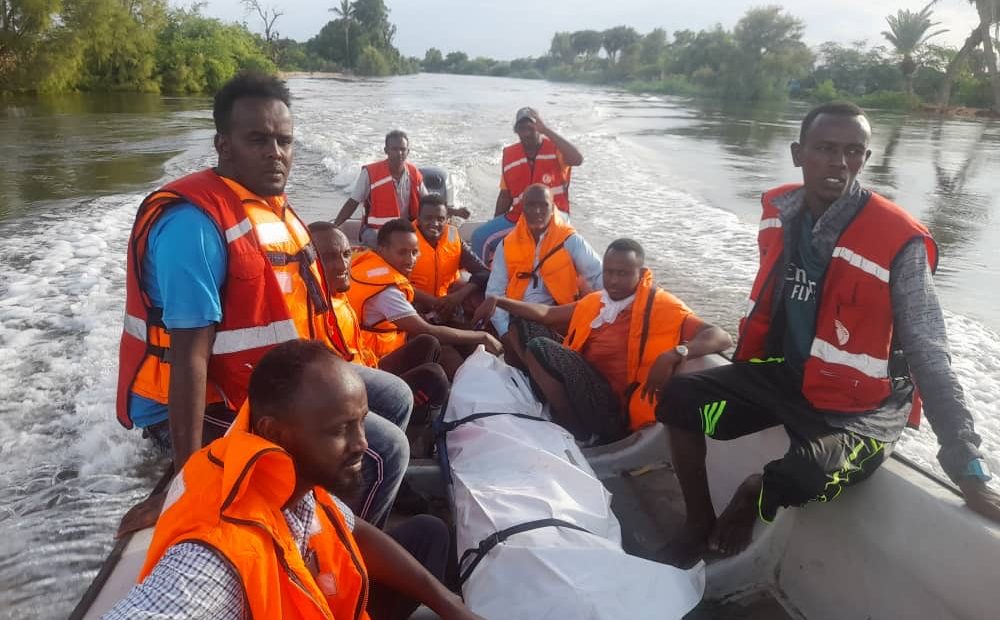Nairobi (ICRC) – Hundreds of thousands of people have been displaced in recent weeks as floods continue to ravage towns in Somalia. Dozens of people have already been rescued by the Somali Red Crescent Society (SRCS) teams but the needs are likely to increase as more rains fall.
In Beledweyne, flood waters from the Shabelle river inundated the town, forcing families to move to higher ground. In Jubaland, another area in the southern part of the country, close to 100,000 people have fled in search of safety after floods destroyed homes, water points such as wells and boreholes, and latrines.
“The floods have stranded many people, and our teams rescued several who had climbed to safety in high tree branches,” said Abdi Abdullahi, the SRCS branch coordinator who is overseeing the rescue efforts by boat in Beledweyne.
SRCS teams have recovered three dead bodies in recent days. Teams in Doolow and Luuq are also providing free phone calls to help affected families stay in touch with loved ones.
Anticipating the risks of particularly strong floods related to El Nino this year, the International Committee of the Red Cross (ICRC) and the SRCS have been distributing tens of thousands of sandbags and securing close to 100 wells and boreholes as part of its emergency preparedness.
“The impact of such extreme weather events on communities whose livelihood is already impacted by conflict is heartbreaking. The settlements are flooded with dirty water while the shelters are washed away, leaving women and children out in the open,” said Pascal Cuttat, the head of the ICRC delegation in Somalia.
“People in this region have endured more than three decades of armed conflict and are just recovering from a prolonged drought. Once again, we see how devastating the combined impact of armed conflict and climate shocks can be.”
The ICRC and the SRCS have prepositioned in different parts of the country 49,000 hygiene kits, which include water treatment tablets, soap, sanitary pads, buckets, jerrycans and mosquito nets. Distributions to affected communities will start as soon as the situation allows.
For more information, please contact:
Abdikarim Mohamed, ICRC, tel: +254 770 171 756, email mabdikarim@icrc.org
Abulkadir Haji Ibrahim, SRCS , tel: +254 722 940 297, email: caafi63@hotmail.com
Florian Seriex, ICRC, tel: +254 110 938 077, email: fseriex@icrc.org
or visit our website: www.icrc.org
To preview and download the latest ICRC video footage in broadcast quality, go to
To find out what the ICRC is doing to put an end to attacks on health workers and patients, go to
Follow the ICRC on facebook.com/icrc and twitter.com/icrc


